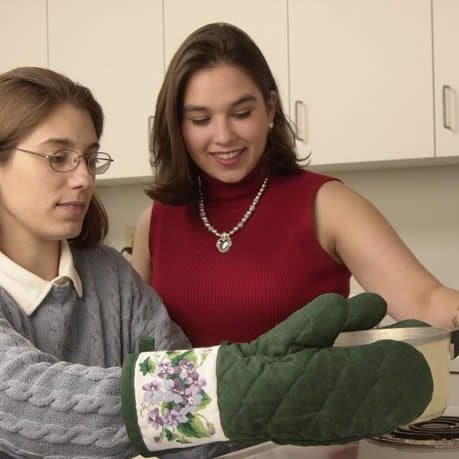OTA Fieldwork for Educators: Level 2
“The goal of Level 2 fieldwork is to develop competent, entry-level, generalist occupational therapy assistants. Level 2 fieldwork must be integral to the program’s curriculum design and must include an in-depth experience in delivering occupational therapy services to clients, focusing on the application of purposeful and meaningful occupation. It is recommended that the student be exposed to a variety of clients across the lifespan and to a variety of settings.”
—2018 ACOTE Standards and Interpretive Guide
The Occupational Therapy Assistant Program at ACC must ensure “that the student is supervised by a currently licensed or otherwise regulated occupational therapist or occupational therapy assistant (under the supervision of an occupational therapist) who has a minimum of 1 year full-time (or its equivalent) of practice experience subsequent to initial certification and who is adequately prepared to serve as a fieldwork educator. The supervising therapist may be engaged by the fieldwork site or by the educational program.” (ACOTE, 2018)
The Program must also ensure “that supervision provides protection of consumers and opportunities for appropriate role modeling of occupational therapy practice. Initially, supervision should be direct and then decrease to less direct supervision as appropriate for the setting, the severity of the client’s condition, and the ability of the student.” (ACOTE, 2018)
To help ensure consumer protection, supervision of the Level 2 student should initially be direct. Based on the discretion of the fieldwork educator, competency level of the student, nature of the setting, and complexity of the client’s condition, supervision should gradually decrease to less direct in order to prepare the student for entry-level practice. To access AOTA’s Student Supervision resource page which includes guidelines for Medicare requirements, click here.
Each fieldwork educator (FWE) will be sent an email notification providing the name, phone number, and ACC email address for his/her assigned student. The student will be instructed to make initial contact with the FWE and can then provide additional personal information as requested by the FWE or required by the site.
The following are general Level 2 student learning objectives developed by ACC’s OTA program (aligned with the AOTA Fieldwork Evaluation for the Occupational Therapy Assistant Student). Fieldwork sties are encouraged to incorporate site-specific objectives into the fieldwork program. Students should be provided a written copy of any additional learning objectives created by the fieldwork site.
Screening and Evaluation
The student will:
- gather relevant information from the medical records and patient/family interviews as directed.
- observe client performance during site specific screenings or evaluations and
- in collaboration with the fieldwork educator, identify and prioritize client strengths and weaknesses which may impact occupational performance.
- if direct observation is not available, the student can meet the objective by reviewing a completed evaluation
- state and prioritize problem areas and skills (using the OT Practice Framework as a guide) based on evaluation results in preparation for short term goal development, in collaboration with the fieldwork educator.
- under the supervision of the fieldwork educator, assist with portions of assessments and demonstrate performance on screening tools appropriate for the facility.
- write short term goals directed at prioritized problems, in collaboration with the fieldwork educator.
Intervention and Implementation
The student will:
- carry a caseload of three to five patients, under supervision of the fieldwork educator.
- select interventions that address the identified goals, in collaboration with the fieldwork educator.
- engage the client in treatment activities with the direct supervision of the fieldwork educator (as the student becomes more proficient, supervision should gradually decrease to line of sight supervision).
- demonstrate clinical reasoning skills in both verbal and written form with regard to assigned clients on caseload.
- incorporate the psychosocial aspect of intervention in all clients whether in developmental, mental health, home care or short/long term physical rehabilitation facilities.
- identify and implement activity adaptations or environmental modifications, in collaboration with the fieldwork educator, that reflect the changing needs of the client.
- develop or update short term goals, in collaboration with the fieldwork educator, based on observed client performance using the OT Practice Framework.
During treatment implementation, the student can be expected to demonstrate with proficiency, under the supervision of the fieldwork educator the following skills: standard precautions, proper greeting and introduction of activity to client, implementation of patient safety techniques, accurate goniometry measurements, accurate manual muscle testing, safe lifts and transfers, a variety of inhibitory/facilitory techniques such as brushing, vibration, use of vestibular equipment, effective positioning, variety of feeding techniques, demonstrate splinting principles and techniques (if required), application of knowledge of adaptive equipment, facilitation of group process techniques, instruct in ADLs, instruct in a variety of craft activities.
Communication and Documentation
The student will:
- utilize OT terminology that is consistent with OT Practice and the Occupational Therapy Practice Framework in both written and oral forms of communication.
- consistently identify him/herself as an OTA Student from Austin Community College.
- verbalize the role of occupational therapy (specific to the area of practice) and compare and contrast the responsibilities of an OTR with an OTA in the setting.
- write facility specific documentation on every patient seen.
Professional Literature
The student will present a case study or in-service based on a topic chosen in collaboration with the fieldwork educator (the presentation should include research of professional literature).
Based on his/her discretion, the fieldwork supervisor may also request that the student prepare additional assignments as needed to enhance his/her learning. This may include, but is not limited to, additional readings or a facility specific project.
Values, Ethics, and Responsibilities
The student will:
- demonstrate active participation in the learning process.
- demonstrate adherence to HIPAA regulations by maintaining client confidentiality.
- demonstrate adherence to safety regulations, using sound judgment in regards to personal, environmental, and patient safety.
- demonstrate adherence to the OT Standards of Practice, Occupational Therapy Code of Ethics, and OT Practice Framework while engaging in fieldwork activities.
- demonstrate professional behaviors that are consistent with site (and academic institution) expectations
- demonstrate appropriate interactions with clients, families, the fieldwork educator, and members of the interdisciplinary team.
- demonstrate an active role in the supervisory process by giving, receiving, and responding to feedback in a professional manner.
- Structuring the Level 2 Fieldwork Experience Development Worksheet
- Level 2 Fieldwork Evaluation – Level 2 OTA students are evaluated with the ACC Fieldwork Performance Evaluation for the Occupational Therapy Assistant Student, provided to the clinician by the college’s academic fieldwork coordinator. This evaluation was created by ACC’s OTA program. The academic fieldwork coordinator will send the evaluation form to the clinician electronically before the first day of the experience. For questions related to scoring the evaluation, or to voice concerns regarding student performance, please contact the AFWC.
Search the Health Sciences Website
Occupational Therapy Assistant Updates
ACC and AFD Celebrate Five Years of Red Angels Partnership
A new plaque proudly hangs on the walls of ACC’s Health Sciences building at Eastview Campus — celebrating five years of making a difference in the community.
Read moreOTA Program Application Period for Fall 2023
The Occupational Therapy Assistant Program application period for Fall 2023 will open December 1, 2022. Please visit the Application Process page to see the latest admission requirements.
Read moreTEAS Testing Requirements for Health Sciences Applicants
A TEAS Exam score is required to apply to the following programs: Dental Hygiene, Occupational Therapy Assistant, Radiology, and Vocational Nursing.
If you are not applying to one of the programs above, then you are not required to take the TEAS Exam at this time. Please refer to the Application Process page for your program to see all application requirements.
Read more

